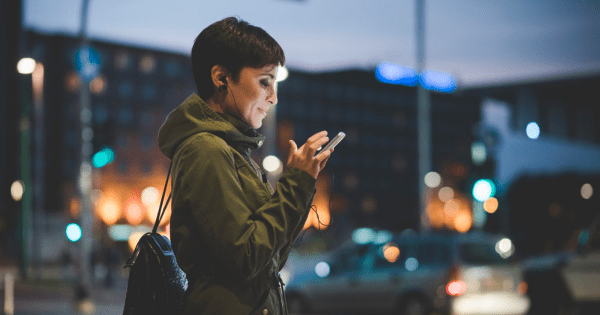This post contains affiliate links. Click here to read my affiliate policy.
Last Updated on December 7, 2023
Many of us use some type of digital device throughout the day whether it be our work computers or our smartphones. In fact, there are up to 1.8 billion websites operating at the same time each day. While digital devices may not seem like a danger to our health and well-being, exposing yourself to blue light for several hours every day isn’t ideal. Here’s how you can protect your body from your devices’ blue light.

Create a Sleep Ritual
When you wake up in the morning, practice a regular, relaxing routine. Follow this with a hot cup of tea or coffee and a relaxing activity such as reading or meditation. When you go to bed at night, try to maintain a consistent sleep time. Lastly, schedule activities that get you moving before bed. This will help to create a consistent circadian rhythm.
Wear Blue Light Glasses
Blue light glasses are special glasses that filter out the harmful part of blue light before it enters your eyes. They work by blocking some of the blue light in the blue part of the light spectrum. This allows your pupils to adjust, which allows a much smaller amount of blue light to enter your eyes. Because they only block blue light, the rest of the light you would normally be exposed to is still able to reach your retina. This can help you work on your computer and use your phone without worrying about harming your eyes.
Limit Blue Light Exposure After Sunset
Blue light is strongest after sunset when your body’s natural circadian rhythm is disrupted. Because most people spend their days in a digital world, this blue light exposure is happening most of the time. Try to minimize blue light exposure after sunset to give your body a chance to adapt to the time change.
Wear Sunscreen (Even Indoors)
The sun is the number one source of blue light exposure, but it can also come from your tech devices, too. Blue light from electronic devices can actually lead to changes in your skin cells, which can speed up the aging process. Blue light exposure for as short as 60 minutes at a time can increase your cellular aging. That said, be sure to protect not only your eyes but also your skin from blue light by wearing sunscreen both outdoors and indoors.
Eat Foods High in Antioxidants
Although studies haven’t definitively proved it, there is evidence that certain antioxidants are beneficial for suppressing cell damage caused by blue light. Because cell damage is the cause of many chronic health problems, including insomnia, fatigue, and mood changes, you may want to try some natural antioxidants to ward off these symptoms.
Blueberry, beetroot, fig, and wineskins are all great sources of antioxidants. Niacin (found in red meat and pork liver) is an antioxidant you can incorporate into your diet. Magnesium and Omega-3 supplements may help reduce some of your blue light exposure. Of course, there’s no silver bullet for sleep troubles, so a number of treatments, activities and sleep hygiene practices can help you get a good night’s sleep.
We use digital devices every day, which increases our exposure to blue light. Fortunately, by following the tips above, you can reduce your risk of blue light’s side effects.

